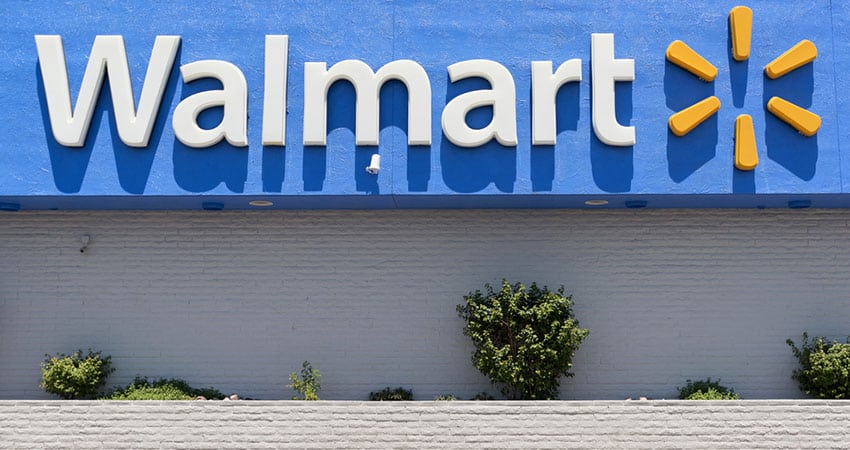It was the power of paying attention that led Andy Dunn, senior vice president of digital consumer brand for Walmart, to launch online men’s apparel brand Bonobos and ultimately change the way he looked at retail.
The journey began when he saw how Zappos was selling shoes online. He realized that if existing brands can be sold online, it was possible to build a brand online.
Dunn said if you bundled great product with an ecommerce-driven service you can create a greater customer experience than either on its own.
“If you look at the history of retail, we tend to focus on either on companies that have products or service, but direct-to-consumer brands are really a combination of both,” said Dunn at IRCE 2019.
For Dunn it was a watershed moment, realizing this was the way brands would come into being in the future. “We spent five years with our heads down, building the online business with Bonobos,” he said.
Five years in, Dunn said the brand was stuck, struggling to take the leap into a second product category beyond men’s pants, which turned out to be shirts. He knew he like many others didn’t want to buy a shirt he couldn’t try on, and thus the concept of Bonobos guideshops was born. The idea was to offer various sizes and fits and create an experience without the typical brick-and-mortar inventory challenges.
Dunn said it started out inauspiciously as two fitting rooms in the lobby of its building.
“We tried something weird and we did something called ‘Like the Shirt’ outfit test,” he said. “We launched it on Twitter and had 1,000 guys sign up. We started processing ecommerce transactions using our website from our lobby.”
Dunn said the focus from day one was on an empathetic high-end customer service experience and one-to-one interactions.
“What we discovered it’s not about owning the internet or bricks-and-mortar, it’s about both,” he said. “The only interesting twist we can add to it is, that the nature of ecommerce radically changes what you need to do with bricks-and-mortar. My view is over time, it will become less about delivering inventory and more about delivering experiences.”
Dunn said he and his partners figured half of the business would come from online initiated transactions while the other half would come from online influenced transactions that happened in person.
After a visit to Nordstrom’s headquarters and a pitch to the company’s management, Nordstrom saw the future and invested $22 million in Bonobos and started selling its clothing in its stores.
Dunn said he realized it was important not to underestimate the power of an existing retailer that had been around for over 100 years that was focused on customer centricity and trying to reinvent itself.
“[Retail] doesn’t really work without bricks-and-mortar, the math doesn’t work,” said Dunn. “If we look at the last 20-plus years since the IPO of Amazon, there have only been one or two other companies that have come to be $5 billion public companies in retail.”
He stressed that pure-play ecommerce and bricks-and-mortar need each other. The best part, he added, is that the customer wins on every dimension because the experiences are getting better.
Dunn told of his meeting with Marc Lore, then president of Diapers.com – later acquired away from competition by Jeff Bezos at Amazon – during the early days of building Bonobos. Dunn explained his concerns about company culture and hiring.
“He said it’s simple,” said Dunn. “You take the thing most people pay attention to, which is their resume and experience, and set it aside. You then pay attention to two things instead – their passion for the mission and their fit with your company’s core values.”
Dunn went back to Bonobos and made a list of 30 people he had hired to that point. He then noted and wrote down five common core values: Self-awareness, empathy, positive energy, judgement and intellectual honesty.
“From that day forward we started thinking differently about how we hired people,” he said. “The hardest part is asking people to leave who aren’t a fit for the culture. Marc transformed the culture of our company.”
Lore later asked Dunn and Bonobos if they were interested in working together, leading to Walmart to bring it into the fold for $310 million in 2017, one of the first of several acquisitions of digitally native vertically integrated brands. He also spoke of meeting Walmart CEO Doug McMillon over dinner and grilling him at length on some of his concerns about the now-parent company, including the fact that it sold guns and had labor issues. Dunn said McMillion allayed all of his misgivings; he now calls him “my hero.”
“I realized (Walmart) is a company that is in transition, a company that is transforming, and saw a chance to be part of something that is going to be profound,” he said. “As I started meeting people it got better and better. It was this entrepreneurial culture, but it was also this culture that cared about the world.”
Speaking of Columbus, OH-based us-size women’s apparel brand Eloquii, which Walmart acquired for $100 million in 2018, Dunn said it’s important not to focus solely on the coasts and ignore the vast interior of the country when it comes to retail innovation.
“Our strategy is a little bit like what Netflix has done over the past decade,” said Dunn. “Selling Tide and organic cheese from other brands is becoming a commoditized business. It’s important, it’s table stakes, it’s also a race to the bottom in terms of margins.”
Dunn said in order to win and grow while providing consumers something they can’t get anywhere else, you have to make your own “shows” and for Walmart, that meant creating a stable of successful DNVI brands.
With every brand Walmart acquires or creates, Dunn said, there is a belief-driven system that is required. Walmart launched design-centric home brand Allswell in 2018, using platforms like Walmart.com to tell the story.
“We found a way to re-engineer the price (of Allswell’s mattresses) down to $319 without changing the quality of the product,” he said. “The direct-to-consumer brand revolution should not be confined to people who can afford to pay for it – it has to be accessible to everyone, and Walmart is a great platform for that.”

